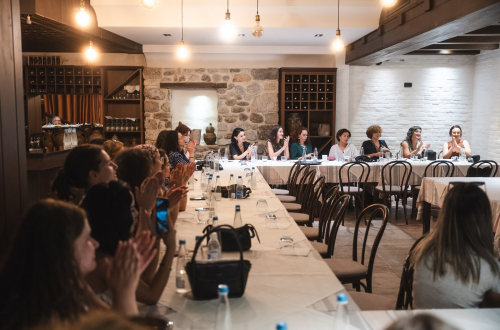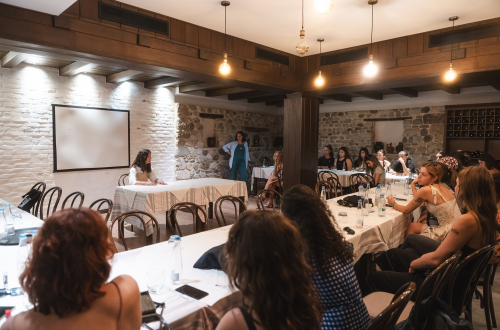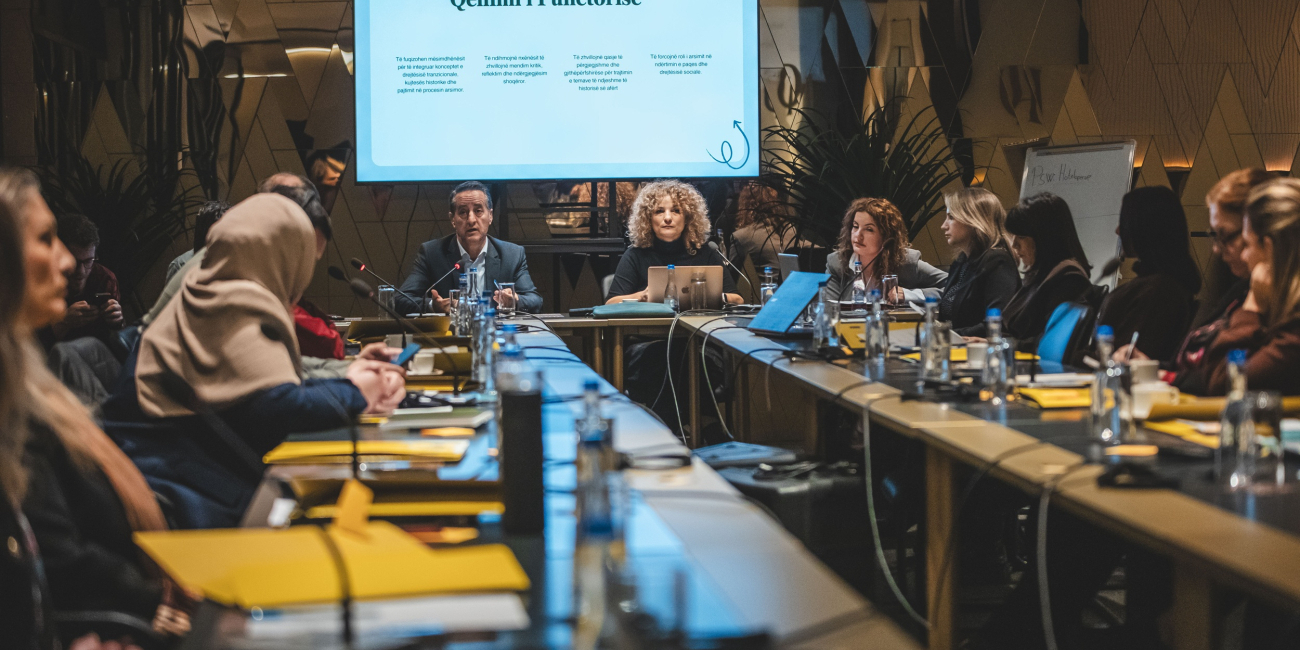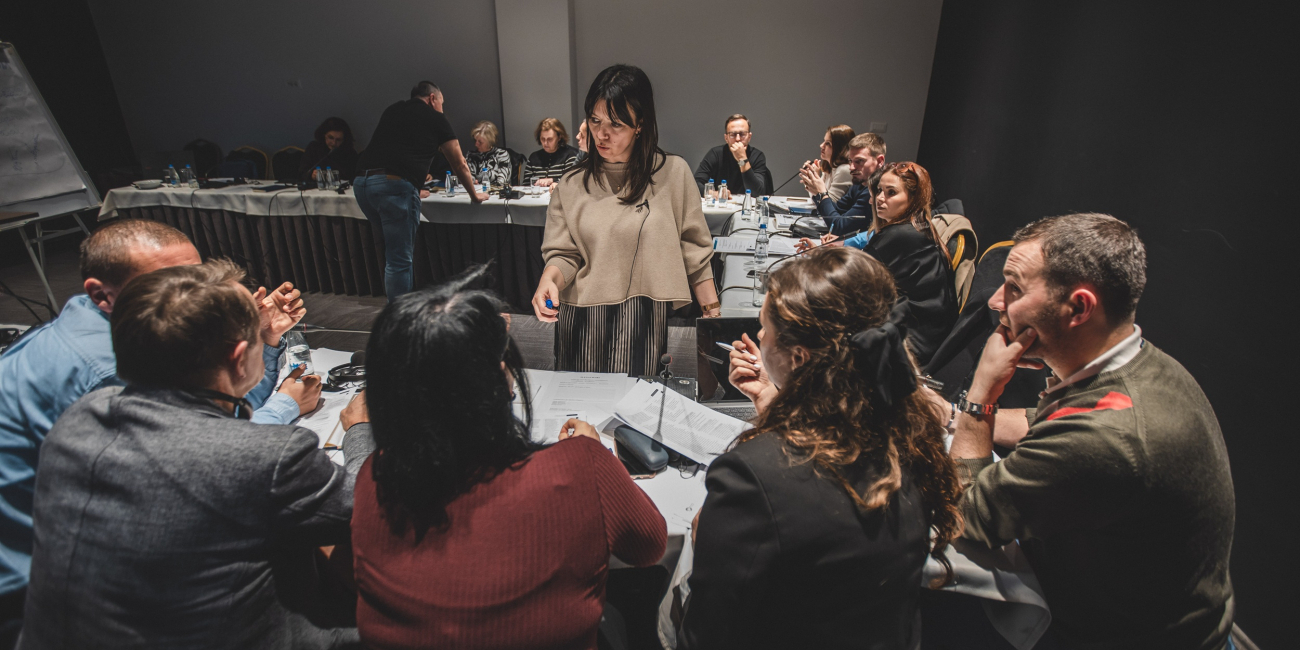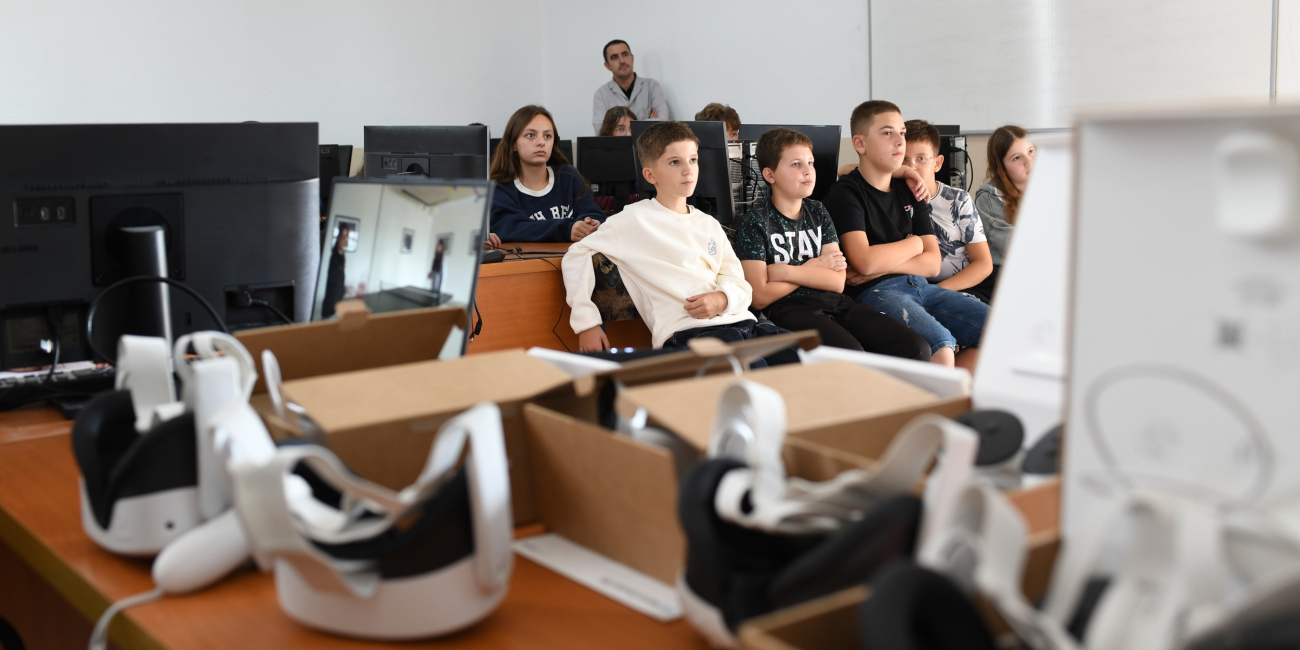DokuFest, in collaboration with the Humanitarian Law Center Kosovo, successfully conducted a series of teacher training workshops within the project…
Për qasje të plotë në Bibliotekën Digjitale ju duhet llogari aktive në DokuLab
Future is A Girl: Women in Cinema
DokuFest operates on the guiding principle that cinema transcends mere entertainment—it’s a potent medium for societal reflection and reform. DokuFest’s unwavering commitment to diversity and equality is manifested in its strategic emphasis on women’s narratives, rights, and empowerment.
The festival believes in the power of women's stories to shed light on underrepresented issues, challenge stereotypes, and catalyze change. Moreover, DokuFest recognizes that promoting gender equity isn't just about programming; it's about fostering a culture of inclusivity, from its organizational structure to its audience outreach.
With a clear vision of promoting gender equity in the cinematic world, DokuFest aims to:
Amplify Women’s Voices: Prioritize and highlight films that focus on women’s stories, challenges, and triumphs.
Engage in Constructive Dialogues: Use the power of cinema to ignite conversations on gender equality and women's rights.
Empower Female Filmmakers: Provide them with the necessary resources, platforms, and mentorship to thrive in the industry.
In light of this, during the 23rd edition of the festival, the event "Future is a Girl: Women in Cinema" invited experts from the film industry. The event featured short 10-minute presentations from each, providing insights into their career journeys, studies, and experiences in the industry.
After a shared lunch, the afternoon session was dedicated to round table discussions, in the form of speed dating, where young talents engaged directly with the experts, asked questions, and sought advice on their career aspirations.
Experts:
Director: Norika Sefa
Scriptwriter: Doruntina Basha
Production Design: Aurelia Martin
Costume Designer: Njomza Haziraj
Director of Photography (DOP): Sevdije Kastrati
Producer: Pauline Tran Van Lieu
Curator/Programmer: Dorota Lech
Composer: Edona Vatoci
Festival Worker: Marion Czarny
Film Promotion and Distribution: Jing Haase

